搭机遇大狗同坐 华人差点吓昏
世界新闻网
6/27/2022

日前华人乘坐阿拉斯加航空(Alaska Airline)返回洛杉矶的航班上,赫然发现自己身边坐着一只巨型犬,把她吓得够呛,幸好最后因不符合航空公司相关规定,大狗和其主人被请下飞机。
华人孙小姐日前乘坐阿拉斯加航班,为了增加舒适体验且也因为疫情,她特别选择超级经济舱的前排位置。但她坐下安置好一切,准备戴上耳机欣赏音乐时,突然一个毛绒绒的东西凑近,她定睛一看,差点吓昏。只见一只黑白相间的大狗跟着狗主人进入机舱。她当时还在纳闷,飞机上可以带这么大的狗吗?同时也暗自祈祷不要坐到自己身边。
结果好巧不巧,那只狗一屁股坐在她身边的座位上,孙小姐立刻心跳如雷。她说,那只狗站起来有一人高,坐在座位上也不老实,动来动去。她时刻担心那狗会扑上来,全身肌肉紧张,不敢呼吸。因为呼吸时能感受到浓重的狗狗气味。她不讨厌狗,但她还没修炼到和这么大一只狗自在地坐在一起的程度。但是狗主人显然很习以为常,不仅坦然坐下,还拿出手机开始玩。
孙小姐说,她试图换座位,但是机舱已经全满了,她真是退无可退,只能不断向空服人员发送求救的眼神。眼看飞机就要起飞,狗不断在座位上动来动去,她都快要尖叫出声了,周围的客人显然也很不安。

幸亏空服注意到这一场景,一名空服过来和狗主人确认狗乘机的相关手续,最后发现这一只狗不符合在机舱同机的要求。本来飞机即将起飞,但为了处理这件事导致延误了半个小时。最后狗主人和狗被请下飞机,孙小姐这才松了一口气。
回到家后,她处于好奇查了一下该航空公司对宠物同机的规定,发现除了要交100元外,阿拉斯加航空要求同机宠物必须在笼子里,而笼子要放在座位下面,且重量不能超过20磅,那只狗感觉明显超过了20磅也没有放在笼子里。
孙小姐表示,她还以为自己两年多没坐飞机,导致和时代脱节,不知道世界已经开放到了和宠物同席的程度,原来是对方没有遵守规定。


华人组团赴欧旅游多人染疫 万幸返美不需阴性报告
世界新闻网
6/26/2022

眼下不少国家对待疫情都实行「放开」政策,加之暑期旅游旺季到来,不少华人纷纷组团出国旅游,舒缓疫情下长时间枯燥的生活。虽然华人总体来说十分注重防疫,但是要去一些疫情严重的国家旅游,就必须要有面临被感染风险的认知。
本报21日报导一华资旅游团在欧洲旅游出现不少人染疫现象,甚至有打了第二针加强针的人仍中招。有同游读者李先生(匿名)回忆起这次旅游,很有感慨。李先生表示,此次旅游团的人员分别来自洛杉矶、纽约还有加拿大,总共上百人,大家集合后乘坐同一航班前往欧洲。起初因为同游者都是华人居多,很多人也是完全接种疫苗后才敢出国旅游,大家比较放松警惕。然而看似轻松的旅行,却因为中途传来同行者有确诊病例,变得紧张起来,之后更一发不可收拾,出现了人传人现象。
李先生说,这次旅行团共有三辆大巴,其中一辆的染疫现象严重,不少旅客在同一辆车上出现咳嗽、发烧等症状,一时间也是激起同行者恐慌。加之有不少旅客不认真戴口罩,车上也没有消毒措施,虽然大家互相提醒,但是组团旅游就避不开很多人在密闭空间的集体活动。比如旅游团会安排团餐,上百个人在一起吃饭,就容易出现传染现象。还有旅馆的住宿通常也是安排双人间,有些单人旅客就会被安排一起并房,大大增加了染疫风险。

李先生表示,如果旅游团和旅客之间相互配合防疫,可能事态不会这么严重。一些旅客是会随身携带自测盒来检测的,但是也有不少旅客不愿意检测。因为欧洲对疫情管控比较松散,旅游团表示也没有权利要求大家检测。大家也都是花了钱出来玩的,有一些确诊患者因为怕影响之后的行程也刻意隐瞒。而且如果中途退团,旅游团需要退还之后的费用。种种因素导致这次的事态变得愈发严重。
客服电话:1 (888) 666-7723
客服邮箱:customerservice@huarenstore.com

李先生说,之前报导的中途退团的那位大姐,因为确诊后出现发烧症状,在旅馆并房也睡不好,无奈选择停止这次旅行。大巴上的大面积染疫甚至还波及当地一个地陪导游,他在确诊后也退出了陪游,但仍有些人确诊了依旧坚持游完旅程。其实这些都还算是幸运的,有一位确诊者因为在医院确诊阳性后,当地政策要求他转阴之后才能出院,导致他不能和其他旅客一起返美,还有可能搭上医疗费用,真的是「赔了夫人又折兵」。

李先生指出还好美国政府出台最新政策,12日之后不再需要航空旅客入境时提供搭机前24小时内的新冠阴性检测证明,时间刚好在他们返美之前,否则这次可能会有大量确诊者被滞留在欧洲,他们的返美之路就会出现大麻烦。
通过这次出国旅游经验,李先生希望呼吁近期有旅游计划的朋友,一定要提前做好防疫措施,最好能买旅游保险,有备无患。近期出国旅游的人数明显暴增,旅途在外身体难免会因为环境地域等的变化,增加染病风险。虽然出行是自己的选择,但还是要多方面考虑可能出现的安全隐患。

南加侨社爆群聚染疫 百岁华翁也中招
世界新闻网
6/24/2022

近日南加州圣盖博谷地区,爆出华人聚餐群体染疫事件;出席餐会的40多名华人中,至少四分之一感染新冠,其中包括一名百岁老人。而此次群体染疫的始作俑者,很可能是餐会上一名新冠刚刚转阴的新冠患者。那么这名染疫的百岁华翁治疗情况如何,这起事件又在侨社引起怎样的风波;今天的世说新闻,我们来看南加侨社群体染疫事件。
Jun 24, 2022

纽约市府:儿童新冠疫苗绝对安全 华人家长:还是害怕
世界新闻网
6/23/2022

继联邦疾病控制及预防中心(CDC)上周末批准了儿童新冠疫苗,纽约市自22日起开放对六个月以上至五岁以下儿童的接种服务,市卫生局长瓦桑(Ashwin Vasan)22日表示疫苗对儿童「绝对安全」,但华人家长仍对其副作用和长期影响持观望态度。
市长亚当斯(Eric Adams)和瓦桑22日一早一同现身位于曼哈顿时报广场的疫苗接种中心,这是全市第一批为儿童提供接种服务的地点,吸引到约20几位家长带着刚会走路的、还在婴儿车里的、或是被绑在胸前的幼儿们到场排队接种;据卫生局统计,当日共计收到约150个预约,该地点一周可服务2500位儿童。
「这是具有历史性意义的一天,为了保护我们的孩子,我们已经等待了两年。」瓦桑说,作为父母,他对孩子的健康也十分担心,所以在仔细考察之后,可以坚信新冠疫苗对儿童是绝对安全的,「可能很多父母会担心长期影响,但我知道它是安全的。」
在该疫苗接种点门外围观的华裔家长Steve Kwok表示,「给年幼的孩子接种疫苗,还是让人感觉很可怕。」主要考虑到疫苗问世时间尚短,对身体有什么长期副作用尚且成谜,「而且年轻人本来抵抗力就强,对疫苗的需求度也不高。」他说自己25岁的大儿子拒绝打疫苗、21岁的二女儿因为要回亚洲旅行,为满足目的地国家的入境要求,只能接种,「我作为父母不会干涉,但全家仍持怀疑态度。」

亚当斯也承认,父母一定会对疫苗有顾虑,「成人疫苗是一回事,儿童疫苗的话,大人肯定会有很多问题。」
对于很多父母关心的,若是母亲在怀孕时、或是哺乳期已经接种了疫苗,那是否孩子们已经自动受到了保护?瓦桑说,「这是完全不一样的,抗体通过母乳和通过疫苗进入身体,进而形成的保护力完全不同。」
CDC此次批准的儿童疫苗共分为两种,目前纽约市开放的十个首批接种站,仅提供莫德纳(Moderna)疫苗,任何六个月至六岁的儿童可以通过两针完成注射;辉瑞(Pfizer)针对六个月至五岁儿童设计,共计需要三针。




专家示警远距教学恐影响注意力 吁家长应变改善
世界新闻网
6/21/2022

受疫情影响,台湾中、彰、投等县市停止实体上课,维持远距教学至暑假,但专家示警,长期使用3C产品恐影响注意力、口语沟通及人际交互,甚至依赖成瘾产生负面情绪,建议家长应提前预防应变,若已有负面行为状况可就医寻求专业协助。
南投医院职能治疗师柯孟蓁指出,有研究发现儿童在观看电视、使用3C产品的时间越长,其注意力不足、分心及过动现象越明显。且当照顾者越依赖3C产品,也易影响到孩童使用3C产品的使用方式,很可能使孩童有负面的情绪行为产生。
此外,长期使用3C产品远距教学除造成注意力问题,也使得群体生活、与他人交谈交互的时间大幅减少,进而影响儿童口语表达沟通与社会人际交互的表现,甚至造成沉迷网络、3C成瘾等状况,柯孟蓁建议家长可通过4个方法预防应变。
柯表示,首先,照顾者及儿童皆须有正确使用3C产品的观念,照顾者尤为重要,须了解3C产品对自己与孩童可能的影响及优缺点,指导或给予儿童及青少年正确的3C使用规范,适时中断使用时间要求休息,较能避免3C产品依赖与成瘾。
客服电话:1 (888) 666-7723
客服邮箱:customerservice@huarenstore.com

再来就是,照顾者若时间允许,建议尽可能陪着孩童使用3C产品,进而知道孩童在使用上课及游戏的状况,并过程中及时导正使用方式;第三就是,创建3C产品使用时间表,如课表班安排可使用3C时段,并严格运行时间表的调度。
最后也最重要的最后一步,就是提供孩童适当的休闲娱乐活动,柯孟蓁说,疫情期间较不适合出游,照顾者可使用桌游、美术劳作折纸等实体益智游戏或静态活动,让孩童在游戏之余加强练习注意力持续度、手眼协调、动作计划等能力。
若空间允许的话,还可以让孩童从事粗大动作的游戏与活动,如到跳绳、攀爬等活动,除了可以练习动作的控制,还能增加肌耐力。
南投医院也提醒,若照顾者有发现孩童已有注意力不集中、常常分心或常有负面情绪行为的表现,切勿轻忽,建议应至复健科寻求专业医师评估孩童的状况,如果有需要应及早介入治疗,以改善孩童的负面行为与状况。
四口之家养育子女 出生到17岁要28万元
世界新闻网
6/13/2022

农业部公布最新报告,全美超过1250万儿童生活在贫困之中,就连中产阶级家庭也越来越难以支付日常开支。
农业部这份报告采用2015年数据,该报告估计,家有两个成人、两个孩子的中等收入的四口之家中,养育一子或一女,从出生到17岁一共花费23万3610元,加计通货膨涨后,该数字到了2022年相当于将近28万6000元。
根据通货膨涨率调整可能还不够。事实上,儿童保育费用增幅已远超过通货膨涨, 2020年,儿童保育费用比前一年增长5.03%,当时的年通货膨涨率仅 1.2%。
经济政策研究所(EPI)资深经济学家古尔德(Elise Gould)说,目前全美许多地方的婴儿日托中心费用可能比州内公立大学学费贵得多。
经济政策研究中心资深研究员弗雷姆斯塔德 (Shawn Fremstad) 表示,美国这一类的家庭政策向来非常保守,政府不愿好好想办法解决人民困境。
布鲁金斯研究院(Brookings Institution)经济研究员鲍尔(Luren Bauer)说,美国儿童保育系统拼拼凑凑,这是一大问题;他进一步提到,政府备有方案为条件符合的儿童提供全额补贴、有税收抵免可补贴高收入家庭部分儿童保育费用、向各州提供款项以扩大协助范围,但问题在于,即使有各式各样方案,却欠缺普遍性或者可负担性。

蒙受通货膨胀沉重打击 美国家庭每月多掏460元
星岛日报
6/11/2022
政府公布最新的通胀增幅达到8.6%,对学者专家而言意味着经济亮起红灯,但对普通民众来说却是实实在在的冲击,平均每个家庭每月要额外支出460元。
《纽约邮报》报道,劳工统计局10日公布数字时,各类消费当中粮食和燃油的价格升幅最大,偏偏这2项都是生活不可或缺的必需品,百姓尤其深受其苦。
穆迪分析(Moody’s Analytics)的高级经济员斯威特(Ryan Sweet)表示, 2018年和2019年之间通胀率为2.1%,如果参考当年的数字,再结合今年的物价升幅,每户民众的平均开支实际上增加了460.42元,和2月份的275元增幅相比,负担更加沉重。
细数各类物价,5月份的能源价格比去年同期上升34.6%,创下2005年9月以来最大的年度升幅,单单计算燃油的话,价格 升幅度更达106.7%,根据美国汽车会(AAA)的统计,截至10日时,全国普通无铅汽油的每加仑平均售价为4.986元,无论是以汽车代步的民众,还是需要长途跋涉的职业司机,都需要付出更高成本。
其他物价方面,机票按年贵了37.8%;新车及货车贵了12.6%;电力贵了12%;外出用餐贵了9%;各类生活杂货的成本上升11.9%,其中鸡肉和碎牛肉的涨幅分别达到17.4%和13.6%。
面对物价持续失控,不少经济专家担心联邦储备局为了遏止通胀,可能大幅度加息,继而导致经济衰退。也有评论质疑,通胀炽热的其中1个原因,是联邦政府在对抗新冠疫情期间,接连几次推出数万亿元的援助方案,过程中虽然帮助了商界和民众度过难关,但也流通货币大为增加。随后俄罗斯2月底出兵乌克兰,包括美国在内的西方国家纷纷制裁,也令国际油价急涨,使得情况变本加厉。
除此之外,疫情期间全球供应链混乱,芯片生产也短缺,无论是新车还是二手车售价都明显上升,除了新车涨价12.6%之外,二手车的价格增幅更达16.1%。
食品方面,肉类、家禽、海鲜、鸡蛋的价格升幅惊人,其中蔬果的增幅虽较温和,但也达到8.2%。

油价创新高 每加仑4.71元…去年才3.04元
世界新闻网
6/03/2022

美国通膨狂飙,汽油价格2日站上每加仑4.71元的新高,更有七个州每加仑油价冲破5元;洛杉矶一座加油站甚至出现每加仑8元的超高价;石油输出国组织及伙伴国(OPEC Plus)2日集会虽同意日增产64万8000桶原油,但并未让油价明显下跌。
驾驶人掏空钱包 心情沮丧
「每日邮报」2日以「拜登通膨」(Bidenflation)撼动美国来形容这一波涨价的冲击;相较1日,每加仑汽油价格连夜涨了4分钱,汽车驾驶人看着油价节节高升,掏空他们的钱包,心情莫不沮丧;无论如何,这是全美50州首度平均油价都涨破每加仑四元。
全国平均油价较去年涨一元以上;去年此时为每加仑3.04元。
西岸地区受高油价打击最重,加州及内华达汽油牌价最高;加州全州油价平均每加仑在六元以上,人口最密集区如洛杉矶更上到八元;内华达平均油价5.36元;夏威夷、华盛顿、俄勒冈三州则在5.20元波段。

洛城冲破8元 洛郡连涨4天
洛杉矶市中心某加油站5月31日每加仑油价格已冲破八元;全洛杉矶郡油价连四天上涨,同日平均自助加油每加仑6.172元。
乔治亚及阿肯色两州算油价最便宜州,平均每加仑分别在4.19及4.23元;东北部每加仑油价可望维持在低于五元。
中西部各地油价不一,范围在每加仑4.50到5.26元之间;大平原区均价在4.36到4.77元;南部油价最便宜,每加仑在4.19到4.33元。
OPEC Plus各国2日视频集会后同意每日增产64万8000桶原油,相形去年同意计划在7、8月增产的43万桶,要增加约50%;但集团会后发出的声明指出,增产是因应中国等国解除疫情封锁,没提到华府施压增产以因应油价上涨。
沙特阿拉伯想改善与拜登政府关系;拜登政府一直想避免油价高涨伤及美国经济,同时担心11月期中选前让选民疏离民主党;但利雅德当局也不打算破坏与莫斯科为期五年的石油联盟;两国目前都是OPEC Plus的领头羊。
油价在OPEC Plus集会前曾下跌,但会后声明发表后回涨;美国油价指针的西德州中级原油涨幅近1%,冲破每桶116元。
白宫发言人尚皮耶(Karine Jean-Pierre)表示,美国欢迎OPEC Plus达成重大决定,7、8月日供应量增加逾20万桶,以因应市场新状况。
纽约州1日起免燃油税 每加仑省0.16元
世界新闻网
6/01/2022

通货膨胀已经让民众生活成本急剧飙升,纽约州长霍楚(Kathy Hochul)6月1日宣布,纽约州从即日起至今年12月31日停收燃油税,预计将让民众每加仑节省0.16元油费;同时,州府也授权各地方政府减免地方燃油税。
此项燃油税减免此前已纳入州府新财年预算案,根据州府信息,州府停收的燃油税包括州机动车燃油消费税(motor fuel excise tax)、州燃油消费税(State sales tax)和大都会通勤交通区消费税(Metropolitan Commuter Transportation District sales tax)。
霍楚表示,近几个月来燃油价格飙升,伤害到工薪家庭和小商业者的利益,「因此这项税费减免十分重要,相当于未来七个月将为民众总计减少6亿900万元燃油支出;目前民众正在经济不景气和通货膨胀中挣扎,我们将继续采取更多措施,减轻民众的财务压力,藏富于民。」
同时,州府还授权各地方政府继续减免各地的燃油税,目前全州已有20多个郡从6月1日起推出地方燃油税减免;例如,洛克兰郡(Rockland)等11各郡将仅对每加仑两元部分的燃油征税,纳苏郡、苏福克郡和威彻斯特郡等13个郡将只对每加仑三元部分的燃油征税。
夏季驾车出游旺季到 油价将维持「火热」
世界新闻网
5/27/2022

多国正加速解除防范新冠疫情的边境管制,加上美国夏季驾车出游旺季将在本周末正式到来,需求前景看升,但供应又不太可能大增。分析师指出,今年夏季的国际油价表现将维持「火热」。
彭博资讯报导,随着全球新冠疫情趋缓,至少已有55个国家取消入境防疫管制,包括英国、瑞典、瑞士、越南、阿根廷、墨西哥及以色列等,无论是否接种过新冠疫苗,抵达前后都无须接受检测与隔离。
一些国家甚至取消游客须戴口罩的规定,也不用填写旅客追踪表。
机票、饭店与度假屋价格的飙升,都意味着今年夏季可望成为「史上最繁忙的旅游旺季」。

美国夏季驾车出游旺季将于本周末正式到来,今夏炎热天候将推升空调需求,都将使燃油消费量大增,但俄罗斯入侵乌克兰所招致的制裁持续干扰供应、石油输出国组织与盟国(OPEC+)闲置产能减少、伊朗核子谈判陷入僵局,及炼油厂炼制产能吃紧,都难以使供应大幅增加。
彭博策略师指出,全球油市依然看多。沙特阿拉伯已暗示,石油输出国组织与盟国(OPEC+)下周不太可能加码增产,而,来自伊朗的供给也不太可能增加。
SPI资产管理公司管理合伙人伊恩斯说,油市动能看涨,许多因素显示原油供应可能更吃紧,尤其是欧盟可能禁运俄国能源产品。
不过,国际油市也仍有利空隐忧。美国与七大工业国集团(G7)都敦促OPEC+扩大增产,中国大陆防疫封控也引发成长前景的忧虑。
国际油价27日盘中涨跌互见,原因就是投资人忧心经济可能陷入衰退。
加州汽油「天价」旧金山每加仑近八元 洛杉矶紧追其后
世界新闻网
5/26/2022

ABC 7电视台报导,尽管加州目前平均每加仑油价约六元,然而旧金山一家加油站,油价却高达每加仑近八元的「天价」。相对的,洛杉矶油价也不便宜,当地司机知道他们为汽油支付的费用,比普通的美国司机要高,因为这是加州要求更清洁空气的代价,已经是加州 DNA的 一部分。
洛杉矶这个以汽车文化闻名的城市的驾车者可能没有意识到,他们支付的费用超过了全国平均水平,在3 月下旬比全国平均水平每加仑多了 1.80元以上。根据美国汽车俱乐部(AAA),这是至少十年来的最高水平 。
但到目前为止,加油站的汽油价狂飙并没有影响旅行计划,尽管每辆车油箱的成本要高出约 24美元,但 南加汽车俱乐部预测,这个国殇日周末将有 260 万当地居民上高速公路。 这比 2021 年增加 5%,但比新冠病毒( Covid-19 )大流行之前的 2019 年低了约 7%。
而位于北加州Menlo Park的雪佛龙(Chevron)加油站,普通汽油每加仑7.25元,高级汽油每加仑高达7.75元。「这个地方对我来说是方便的」,顾客Alisa Arunamate告诉ABC 7电视台,「当你有一群孩子且到处跑时,你别无选择。」
根据Lundberg调查,湾区的普通汽油油价可说全美最贵,每加仑平均6.20元,奥克拉荷马州Tulsa最低,每加仑3.92元。
过去两周,全美普通汽油平均价格,每加仑飙升33分至4.71元,最主要原因,是数千万人准备在繁忙的周末上路出游。此外,在全国范围内,泵的价格比一年前高出1.61元。
Lundberg调查行业分析师Trilby Lundberg日前表示,油价上涨是因原油成本上涨和汽油供应紧张所致。
拜登(Biden)政府和许多民主党人指责石油公司哄擡价格,共和党人则表示,白宫应该支持美国境内石油和天然气钻探与开采。
湾区上月物价飙 21年来最大涨幅 普通无铅汽油全年涨43.5%
世界新闻网
5/12/2022

一份11日公布的最新政府报告显示,湾区4月消费者物价飙升,涨幅几乎与2月公布的21年来最高涨幅打成平手。
美国劳工统计局11日公布的报告指出,湾区4月的通货膨胀率以每年5%的速度大幅上升,仅次于2月时的5.2%。根据圣荷西信使报(Mercury News)对追溯至1990年的数据进行分析,湾区今年至今的通膨年增长率,是2001年年中以来最高,这对居住在生活成本原本就高昂的湾区消费者来说,压力很大。
鸡鸭鱼肉、早餐麦片、奶制品等食品成本、汽油价格和太平洋瓦电(PG&E)费率的大幅上涨,都是造成湾区通膨年增长率显著上升的推手。
住在圣荷西的梁女士(Elizabeth Leong)11日在住家附近加油站接受采访时说:「我是一个依靠固定收入生活的老人,所以物价飙涨对我的影响真的很大。」
劳工统计局的报告指出,全美4月的通膨年增长率高达8.3%,接近40年来的最高纪录。经济学家表示,湾区和美国的通膨年增长率有显著差别,主要是因为在现阶段通膨飙升之前,湾区的消费者物价就已经非常高,例如油价和住房成本早已远高于美国其他地区,所以湾区的通膨增长率会低于全国平均。
湾区4月消费者物价全年涨幅最大的民生必需品包括:普通无铅汽油上涨43.5%、家用天然气上涨23.4%、二手车上涨22.3%、鸡鸭鱼肉蛋上涨19.3%、电力上涨18.2%、早餐麦片和烘焙食品上涨15.1%、在家煮食上涨13.9%、奶制品上涨12%、所有粮食上涨10.2%。
除了物价飙涨,消费者现在还面临利率上升的威胁;因为担心通膨会造成经济失控,美国联邦储备局上周将利率提高了半个百分点,央行官员认为,稳步提高利率将有助遏制消费者物价飙升,然而加息也有可能抑制经济活动和就业机会的增加。
灯塔经济(Beacon Economics)经济学家桑柏格(Christopher Thornberg)认为,美国可能正走向自1970年以来最严峻的经济情势,当时就业机会减少和高利率同时威胁到经济,是一种罕见但具有破坏性的现象,称为「停滞性通货膨胀」(stagflation)。
桑柏格说:「美国经济已经过热、过度支出、过度膨胀,就像一辆汽车以120哩的时速,从山坡上朝一辆停在山下的卡车冲下来,但又担心万一刹车踩得太用力,会让汽车打滑。」
美国梦变成了噩梦:美国中产阶级的愤怒
来源:纽约时间
5/01/2022
杰夫·斯沃普(Jeff Swope)今年2月得知房东将隔壁那套两居室空置公寓的租金提高了30%以上,达到每月2075美元,他第一次感到愤怒。
42岁的斯沃普是一名教师,他的妻子阿曼达·格林(Amanda Greene)是一名护士。尽管他们的年收入为12.5万美元,但他们无法承受如此大幅的租金上涨——再加上学生贷款、汽车贷款、水电费和其他三口之家不断增加的所有成本。“这种挫败感就像温水煮青蛙一样,”斯沃普在他简朴的公寓里说,“我们眼睁睁地看着租金飞涨,心里想,好吧,这也太荒谬了。这是在搞什么名堂?”
35岁的珍·杜威-奥斯本(Jen Dewey-Osburn)住在凤凰城郊区,当她计算自己欠了多少学生贷款时,愤怒爆发了:她借了22624美元,还了34225美元,但她现在还欠43304美元。她和她的丈夫知道他们比大多数人都幸运,毕竟他们都有不错的工作,但他们觉得在财务上太吃力了,因此无法想象再添个娃会怎样。“我们在道德、身体和情感上感到疲惫,”她说。“没有正确的选择;好像怎么选都是错。”
26岁的奥马尔·阿卜杜拉(Omar Abdalla)的愤怒在他第12次购房竞价失败后达到了顶峰,他觉得相比他和妻子,他身为第一代美国移民的父母能拥有更多的财务稳定。他们都有很好的大学学位和很有前途的职业,但他们存下的9万美元作为首付,在卖家那里完全没有竞争力。
相比之下,阿卜杜拉的父母拥有两套房子,他岳父母有四套。“他们从房子上赚的钱可能比他们工作赚得更多,”他说。“相比之下,我名下没有一项资产能让我安枕无忧,这就是让我心碎的部分。”
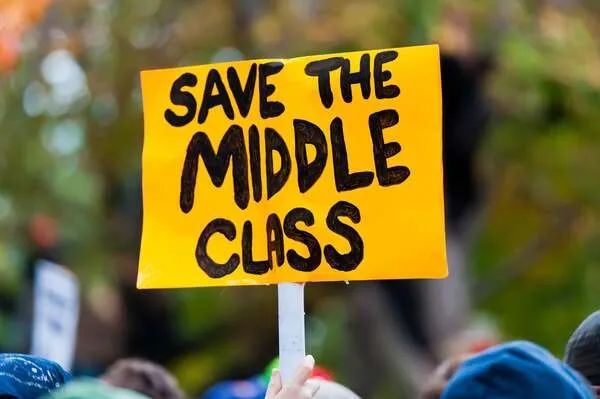
美国中产阶级家庭几十年来一直举步维艰,收入增长停滞,物价上涨,而疫情引发的通货膨胀尤其让他们对前途倍感迷茫。疫情之初,他们似乎有了一个赶上来的机会:他们保住了自己的工作;由于企业难以找到工人,他们的工资开始以更快的速度上涨;他们存钱的速度也比之前几十年更快。皮尤研究中心(Pew Research)的数据显示,大约三分之一的中等收入美国人认为,在疫情爆发一年后,他们的财务状况有所改善,因为他们被隔离在家里,同时受益于政府发放的救济金、儿童税收抵免和暂停联邦学生贷款还款。
但18个月后,他们越来越怀疑,任何财务安全感都只是一种幻觉。他们的银行存款可能更多,但在美国,成为中产阶级不仅仅关乎你赚多少钱;而是你能用那笔钱买什么。有些人以一个家庭是否在地下室有第二个冰箱或在院子里有一棵树来衡量,但布鲁金斯学会的中产阶级未来计划主任理查德·里夫斯(Richard Reeves)说,真正重要的是人们是否觉得他们可以轻松负担“三H”:住房(housing)、医疗保健(health care)和高等教育(higher education)。
仅去年一年,房价就飙升了20%,所有商品的价格上涨了8.5%。与去年相比,今年美国家庭在消费价格指数(CPI)所追踪的基本商品和服务上的花费增加了3500美元。相比之下,经通胀因素调整后的平均时薪下降了2.7%。这种压力让许多自认为是中产阶级的人难以负担得起“三H”,尤其是住房。根据密歇根大学的消费者调查,今年3月,美国消费者信心降至2011年以来的最低水平,更多的家庭表示,他们预计自己的财务状况将恶化,这比1980年5月以来的任何时候都要多。
“我们的座右铭是:努力工作,付出应有的代价,你会得到回报。但你的目标总是越来越难以够到,”36岁的丹尼尔·巴雷拉(Daniel Barela)说,他是新墨西哥州阿尔伯克基的一名空乘人员,他非常清楚他的父亲在他这个年龄已经有了自己的房子和四个孩子。巴雷拉和他的伴侣去年共赚了大约6.9万美元,他觉得自己成年后的大部分时间都缺钱。他在经济大衰退期间失业,2008年一家大型信用卡公司将他的贷款利率上调至29.99%后,他不得不申请破产。
他说:“无论我从事什么样的工作,无论我做了多少工作,似乎都买不起自己的房子。”
像巴雷拉这个年龄段的人构成了今天的大部分中产阶级,但是,即使他们赚得比他们的父母更多,即使他们有大学学位和一份光鲜的工作,即使他们有地方住,有iPhone,有平板电视,但许多人现在感觉到,尽管一路循规蹈矩,但他们在财务上极其脆弱。家庭年入超过12万的斯沃普说:“我们的收入理应使我们成为中上阶层,但事实却并非如此。如果你是中产阶级,按道理你有钱做些好玩的事情,而我们不行。”
一代不如一代
《时代》杂志采访了全国数十位收入处于美国收入中60%的人,这就是布鲁金斯学会定义的中产阶级。对于一个三口之家来说,这意味着年家庭收入在42500美元到166900美元之间。以下是我们听到的:
“美国梦绝对是一场噩梦,我现在不想再陷入这场噩梦中。”
“这真是令人挫败极了。我失去了希望。不知道该怎么办才好。”
“我们做了我们应该做的事情——但我们的负担太重了。”
“我赚得比以往任何时候都要多,但我还是买不起房子。”
“我已经在这里扎了根。我不想被迫离开。”
许多人提到了对父母或年长同事的不满,因为对方不理解为什么年轻一代没有像他们那样买一幢郊区别墅或还清大学债务。“婴儿潮一代能做最低工资工作的同时,还能开开心心地生活——去国家公园玩儿啦,生儿育女买房子啦,这对我们来说是不可能的,”朱莉·安·尼奇(Julie Ann Nitsch)说。她是奥斯汀的一名政府工作人员,她的房东决定要在5月份将她出租的房子挂牌出售,之后她就不能再在她服务的县居住了。
他们说得有道理。随着房地产价格涨幅超过通胀水平,拥有住房的愿望一代比一代难以实现。根据城市研究所(Urban Institute)的数据,1980年,35岁至44岁的人群中有超过70%拥有住房,但到2018年,这个年龄段的人买房的比例不到60%。截至2019年底,自有住房总价值飙升至29.3万亿美元,这造成了一种分化,让拥有住房的年长美国人富裕起来,却将无力进入市场的年轻一代拒之门外。
千禧一代和更年轻的一代在几十年来最严重的经济衰退中成年,进入工资增长缓慢的就业市场,然后在疫情开始时经受了又一轮衰退。在此期间,成本持续上涨。家庭收入中位数自2001年以来仅增长了9%,但大学学费和其他费用同期增长了64%,自付医疗费用翻了近一番。在所有80年代出生的孩子中,只有一半长大后收入超过父母,而在40年代出生的孩子中,这一比例超过90%。彭博社的数据显示,与婴儿潮一代在40岁时相比,千禧一代和X世代的净资产更低,债务更多。
他们的担忧关系到更大的美国经济。正如乔·拜登在2019年所说,“当中产阶级处境不错时,每个人都会非常非常好。富人会特别好,穷人也能看到一些光明,一个机会。他们的想法是,‘也许我也能找到一条向上的出路。’”
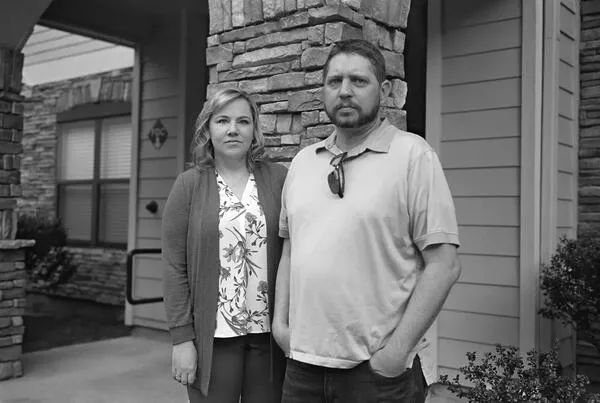
在失业率处于历史低点的情况下,如果中产阶级感到自己被几十年来最强大的经济体排除在外,这是一个严重的迹象,表明社会不和谐即将到来。现在,没有大衰退,没有科技泡沫,也没有复杂的房地产投资产品崩盘来解释为什么房市如此紧张。从表面上看,美国经济看起来欣欣向荣。但就像斯沃普所说的温水煮青蛙一样,许多中等收入人群意识到他们正处于水深火热之中。“这不是凭空冒出来的火山,”布鲁金斯学会的里夫斯说。“在某种程度上,我们已经看到了经济中的这些长期变化,比如工资增长缓慢和向下流动。经济构造压力可能需要一些时间才能充分建立,而现在火山正在喷发。”
Email: OaktonAcademy@gmail.com
https://www.oaktonacademy.com/
三座大山,以住房最严重
在过去的几十年里,三H的成本都在飙升,但引发当前诸多不满的是住房成本——通常这是所有家庭最大和最关键的支出。几十年来,除了2007年至2009年的一次下跌,房价一直稳步攀升,但在过去的一年里,房价增长达到了疯狂的地步。很少有地方能幸免;超过80%的美国都市区房价上涨了至少10%。在斯沃普和格林居住的亚特兰大都市区,房价中值为40万美元,较去年上涨了7.5%。(他们认为自己能负担得起一套30万美元的房子。)
推动房价上涨的因素有很多,包括经济大衰退后建筑业滞后、短期租赁房屋的增加、机构投资者购置独栋房屋的投机行为、建筑材料短缺,以及劳动力和供应链问题。家庭想要花掉自己存下来的钱,婴儿潮一代在疫情期间想要留在家里,千禧一代急于成家,这些需求不断增长,加剧了这些问题。
最近的购房热潮已经得到了充分的证明,但在许多地方,租房者的处境比买房者更糟糕。2021年,一些州的房租上涨了近30%,预计今年还会进一步上涨。37岁的大卫·罗宾逊(David -Robinson)在凤凰城出生长大,现在与女友和三个孩子住在马里维尔(Maryvale)一套简陋的三居室公寓里,他认为那里算是城中较为低档的地区。去年9月,在“某家位于华盛顿州的物业管理公司”买下了他们所住的这栋楼后,房租从每月1200一下跳涨到2200,他说,他现在的房租约占他作为一名公用事业测量师收入的50%。
他说:“现在买了衣服、食物,支付了水电等其他账单之后,我们基本上就没有任何存款了,一家人根本没有钱进行任何娱乐活动。”他希望他们的车能撑得更久一点,更别说他们的健康了。
杰夫·斯沃普的妻子阿曼达·格林(Amanda Greene)知道这种感觉。在她的吉普切诺基意外报废后,她将车子降格为丰田卡罗拉(Toyota Corolla),为此还要贷1.9万美元。在她嫁给杰夫并加入他的健康计划之前,她和她7岁的女儿通过雇主获得的医保每月要自付1400美元。格林患有慢性病,需要定期进行大量检查,因此她选择只买自己的保险,女儿看病完全自费。她说,目前她还有数千美元医疗费要还,因为她的保险不负责报销。
在过去20年里,医疗费用的上涨速度通常快于通货膨胀,这主要是由于医疗费用上涨以及人口老龄化。1980年,经通胀因素调整后,全国人均保健支出为2968美元;到2020年,这个数字增加了4倍。大流行加剧了挑战,因为许多人失去了工作和因此获得的医保。根据Commonwealth基金进行的一项调查,在疫情期间感染新冠或失去收入的成年人中,有一半以上也在为医疗账单而挣扎。
随着大学教育成本增长、联邦政府对公立大学的资助暴跌,第三个H,也就是高等教育也越来越昂贵。随着学费上涨,越来越多的学生申请贷款。2020年,平均学生贷款债务为36635美元,经通胀因素调整后大约是1990年的两倍。许多家庭几十年来需要为还学生贷款而挣扎。格林当年是在一所私立大学获得了护理学位,她以为这能让自己在职场拥有更好的机会。现在,她背着9.9万美元的贷款,而她的两个没有上大学的姐妹则没有债务。
总的来说,三H在斯沃普和格林的实得工资中所占的比例越来越大。加上食品和水电之类开销,他们有好几个月的时间没有足够的钱开房租支票。他们已经够省的了:他们不下馆子,不买名牌货。虽然他们都是全职工作,但斯沃普正在考虑找份兼职工作。
一些经济学家认为,糟糕的会计核算掩盖了中产阶级的危险状态。前克林顿政府货币审计长尤金·路德维希(Eugene Ludwig)表示,CPI扭曲了中低收入美国人的真实经济状况,因为它还计入了游艇、第二套住房和酒店房间等可自由支配项目的成本。根据他的计算,家庭最低需求成本从2001年到2020年上升了64%,比通胀率快1.4%。今年3月,路德维希共享经济繁荣研究所(Ludwig Institute for Shared Economic Prosperity)发布的一份报告显示,房价实际上涨了149% (CPI计算为54%),医疗成本上涨了157% (CPI计算为90%)。
路德维希研究所执行主任斯蒂芬妮·艾伦(Stephanie Allen)表示:“我们发现,2001年的人们还有一点点可自由支配支出,但相比之下,到2019年,许多家庭,尤其是多子女家庭,都完全没有可自由支配支出。”(她说,疫情使得追踪这些数据过于不可靠,无法估计自那以后的可自由支配支出。)
老一辈人理解不了中年人的苦
三四十岁的人感到的压力和愤怒正蔓延到他们与父辈的关系中。如今,在美国,一个收入中等的家庭需要支付六倍的收入才能买到中等价格的房子。在1980年,只要两倍的收入就能买到。但许多婴儿潮一代似乎对他们孩子的困境不太能感同身受。
杰夫·斯沃普的父亲当年靠一名社工的薪水养活了一家三口,并在乔治亚州的桑迪·斯普林斯(Sandy Springs)买了一栋大约5万美元的房子,他的母亲去年以25.5万美元的价格卖掉了它,而那个买家今年3月再加价三成卖出。
对照来看,斯沃普2003年大学毕业,获得市场营销学位,找到了一份销售黄页广告的工作。当这个行业随着在线搜索引擎的普及而消失时,他一边做服务员,一边获得了教育学学位。2008年,他在经济大衰退期间毕业,没有固定工作,他只能做家教来养活自己。
直到2013年,他才得到一份公立学校入门级教师的工作。即使是现在,他5.5万美元的收入也不足以支撑三口之家。他和妻子格林申请了一笔抵押贷款的预批准,但一直没有收到回音。他觉得被困住了。“老一辈人看不起你,因为他们就是不理解,他们觉得除非你有房子,否则你就不是一个成年人,”他说。
有些人很难理解的一件事是,结构性变化的涟漪效应在他们年轻时才刚刚开始。例如,工会数十年来的衰落使得工人们更难通过谈判获得更好的工资和福利。斯沃普没有加入教师工会,因为乔治亚州不允许公共教育工作者进行集体谈判,这也是该州2020-2021学年公立学校教师的平均工资比1999-2000学年(经通货膨胀调整)低5%的原因之一。在有着强大教师工会的马萨诸塞州,同期公立学校教师的平均工资增长了19%。
在全国范围内,能提供医疗保险和其他福利的工作越来越难找。现在的零工工人比十年前至少多了600万。甚至像谷歌和Meta这样收入丰厚的公司也会将清洁、食品服务和一些技术工作外包出去,将许多在办公室工作的人排除在全职工作之外。


与此同时,自动化和技术的崛起势头不减,意味着越来越多的雇主希望聘用受过大学教育的员工。哈佛大学的一项研究显示,2015年,约三分之二的生产主管职位需要大学学位,而在已经就业的生产主管中,只有16%拥有大学学位。
空乘人员小丹尼尔·巴雷拉的父亲老巴雷拉不明白他的孩子们为什么过得不好。1984年,当他第一次搬到阿尔伯克基时,他做门房的时薪为5.4美元。他没有大学学位,但他在自己的公司努力工作,买下了房子。他和妻子现在在新墨西哥州拥有九处房产。
他说:“我这一代人——我们不会说一周工作40个小时后就躺平休息。如果你想要成功,40个小时只是起点,我们会不惜一切代价。这一代人,他们工作40个小时就累坏了。”
老巴雷拉有养老金,这是他这个职位的人今天得不到的。他承认现在的房价比他当年置业时要贵。但对于开出12到15美元的时薪找不到人来帮他修理出租屋,他也感到纳闷。“不只是我的孩子。我在其他孩子身上看到了这一点——他们就是不想工作,”他说。
这让他的儿子非常沮丧。他在航空业工作了很长时间,但仍然没有资格拥有自己的房子。他说,每当他加薪时,医保费和其他费用也会跟着上涨。这并不是他的托辞。根据路德维希研究所的数据,在阿尔伯克基,教师和救护车司机的年收入达到7.7万美元,比美国收入中位数的6.7万美元高了整一万,但他们每年仍需要背负6000美元的债务才能满足最低的适足需求。
中产阶级的崩溃
许多接受本文采访的人把不满指向了巨富阶层,这些人通过投资积累财富,当他们从投资中获取财富时,税率要比工资低得多。长期以来,中产阶级的普遍不满和萎缩一直与政治不稳定联系在一起。在经济严重不平等的时代,富人压迫穷人或穷人试图夺取富人的财富,这将导致暴力和革命。但范德比尔特大学法学教授甘内什·西塔拉曼(Ganesh Sitaraman)表示,中产阶级的存在帮助美国避免了这场冲突。这就是为什么他认为“今天对美国宪政的最大威胁是中产阶级的崩溃。”
长期以来,拜登总统一直把自己塑造成中间派的捍卫者,然而,他正在失去他们的支持;在NBC 3月份的民意调查中,只有三分之一的人支持他对经济的处理,自1月份以来下降了5个百分点。
一些经济学家认为,二战后的几年是一个反常的时期——一段生产率空前增长和繁荣的时期,这种繁荣永远不会被复制。数以百万计的人根据《退伍军人权利法案》上了大学,工资大幅上涨,家庭得以购买房屋、汽车和电视。
这意味着,将中产阶级工人与其父母进行比较可能不是衡量他们经济状况最有效的方法。如果他们的童年是在非凡的经济增长时期度过的,那么像斯沃普和巴雷拉这样的人今天感到落后也就不足为奇了。此外,在之前几代,许多美国人,包括有色人种和女性,无法进入工作岗位和拥有住房。里夫斯说:“美国中产阶级以前能做得这么好,部分原因是他们把人们排除在劳动力市场之外,而且他们有强大的工会,能给他们带来比市场能给他们的更高的工资。”
适应新的世界并不容易。里夫斯提醒人们,不要拿自己与父母那一代人相比,而是要与没有大衰退和大流行衰退期间的政策行动相比。如果政府没有在疫情期间暂停学生贷款支付,并发放刺激支票和儿童税收抵免,会怎么样?
不久前,在杰夫·斯沃普发现他的公寓小区涨价后,他在Facebook上一个名为“没人想工作”的群里发了一篇帖子,讽刺那些抱怨找不到工人、却只愿意为烂工作支持底薪的企业。
“一名护士和一名教师,家庭收入为12.5万美元,无法靠积蓄获得成功。太糟糕了,”他写道。一些评论者指责他不善理财。他们无法同情一个收入六位数却仍在挣扎的人。
但是成百上千的评论者中有更多的人有不同的感受——他们完全懂斯沃普的感受。“我男朋友和我在一家钢铁厂工作,隶属于工会,处境差不多,”一个人写道。另一位同样是护士的女性写道,她和她的工程师丈夫也过着月光族的生活。在评论中,他们的愤怒无法抑制。另一条评论说:“你们做着两份最重要的工作,却只能勉强维持生活,这太荒谬了。我讨厌这个国家。”
Federal Reserve warns of brewing US housing bubble
But experts say bubble won’t burst like it did in 2008 recession, especially in growing cities like Jacksonville
4/01/2022
JACKSONVILLE, Fla. – Economists with the Federal Reserve issued an unsettling warning to millions of potential homebuyers, cautioning that the real estate market is showing signs of a brewing U.S. housing bubble.
But experts who News4JAX spoke with say the bubble won’t burst like it did in the 2008 recession, especially in growing cities like Jacksonville — which instead might continue to see a home and rent affordability crisis.
As Northeast Florida home prices continue to soar, some buyers are so desperate that they are willing to forgo a house inspection.
It’s those rising prices that economists with the Federal Reserve Bank of Dallas say are out of step with the rest of the real estate market and could lead to the bubble bursting.
But according to real estate experts, unlike a decade and a half ago, Florida has limited inventory versus an oversupply of homes — which real estate economist Ken Johnson, with Florida Atlantic University, says will lead to a drawn-out affordability crisis.
“I think what we will talk about this bubble, if you will, and I use that term to emphasize that there’s going to be some pain involved in this,” Johnson said. “And rather than seeing prices crash, I think the Fed is perhaps a little bit off on that, at least for Jacksonville.”
Johnson says the prices of homes may eventually crash in other metropolitan areas like Memphis, Tennessee, and Detroit, Michigan — cities where he says the population simply isn’t growing. But that’s certainly not the case in Northeast Florida as more and more people are coming to the Sunshine State.
“Too many times people interpret that word ‘bubble bust,’ just what happened back in ‘08,” said Northeast Florida Association of Realtors President Mark Rosener. “And I really don’t see any signs that, that is happening.”
Rosener expects a more normal selling season in the upcoming summer and fall months, pointing to the equity homeowners have gained during this red hot sellers’ market.
“We have more equity in our homes today as Americans than ever before — historic highs. What happened the last time was more of a banking industry failure, and people were extending themselves beyond their means. And the supply was much higher than it is today. And there wasn’t any equity in their homes. That makes a difference,” Rosener said.
Homes in North Florida are selling for 37% more than they should be, according to real estate experts. They say long-term effects we’ll feel in the Jacksonville area will be continued high home prices and perhaps even higher rent.
休士顿房市热 房价、租金都涨 专家:明年还会再涨
世界新闻网
4/01/2022

休士顿房地产有多热?2022年买卖的平均价已经上涨了13%,租金更成长15.7%。但是休士顿还不是德州租金涨最凶的地方,奥斯汀年增28%,达福地区(Dallas/Fort Worth)增加21.1%,圣安东尼奥17.9%。
但专家说,这波涨势不是泡沫,因为供给一直无法满足需求,因此房价今年还将再涨四个百分点,明年五个百分点。所以等得越久,价格愈贵。
Houston Association of Realtors主席Jennifer Wauhob说,今年此时的买卖价格已经年增13%。她说,去年的均价是36万元左右,但是近日的成交均价已经涨到39万5000元。同时,卖房者不断出现,因此不是泡沫,而是真的供不应求。
Houston Apartment Association的主席Christy Rodriguez说,休士顿地区租金已经年增15.7%,如果打算续租,房客最好货比三家,才不会吃亏。
全美租房最实惠城市 北卡洛丽排第十名
世界新闻网
3/30/2022

房地产网站Realtor.com最近发布的报告显示,北卡洛丽在今年2月份全美十大租房最实惠大城市中排名第十,尽管如此,洛丽地区的租金目前仍在持续上涨。
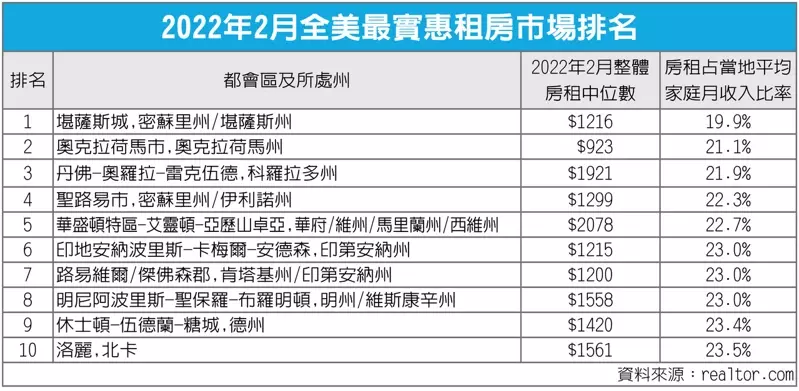
该报告指出,在美国50个人口最多的大都市中,洛丽挤入租金最经济实惠城市的前十名单。不过该报告也说明,即使在这些租金较负担得起的地区,「租金的增长速度也超过了收入,在工资中所占的比率也比以前更大。」
报告数据显示,洛丽今年的整体租金中位为1561元,比去年的1300元上涨了20.7%。此外,数据中各种类别的房型,今年的租金增幅都比去年大,譬如单间公寓(studio)目前租金中位为每月1472元,一年内增长了26.6%;一房公寓的租金中位现为1440元,比一年前上涨了22.4%;两房公寓的租金中位现在是1750元,比一年前的1440元上涨了21.7%。
如果去年签下的租约是1300元,今年租金上涨20%,变成每月要支付1560元房租,对一些人来说,这可能意味着他们必须被迫搬出原本的房子或公寓。与此同时,维克郡的房地产市场也继续飙升。WRAL电视台报导,该郡2月份房价中值飙升至42万元,创下新高。
不只房价与房租频创纪录,根据美国劳工统计局(U.S. Bureau of Labor Statistics)的最新数据,美国自2021年2月至2022年2月,通货膨胀率为7.9%,达到40年来的最高点。其他消费品的价格也在上涨,尤其是食品和汽油。
通膨难降…1月房租较去年同期涨15.2% 恐继续成长
世界新闻网
3/10/2022

近来万物齐涨的趋势压得让人难以喘息,随着新冠疫情后的经济复苏,租屋市场供不应求的情况造成去年房租涨势更加惊人;根据房地产仲介网站Redfin统计,今年1月的房租平均较去年同期增加15.2%,而且恐怕只有继续成长的趋势。
早在疫情爆发前,由于新成屋的完成率远远落后于市场需求,房租就已开始上涨;同时,房价也持续上升,使得许多原本计划购屋的租屋族打退堂鼓,也让房东顺势推动租金涨势。
随着国内民众的生活逐渐回归到疫情前的模式,新屋市场的需求在2021年急遽成长,但由于疫情影响和一系列供应链紧缩使得建设工程延宕,房客只能在供应有限的市场内以更有利的价格吸引房东。
「租屋需求扩张地太过快速,远远超越市场的供应量。」市调机构Apartment List的分析师沃尔诺克(Rob Warnock)解释:「尤其供应链在疫情间受创严重,反弹更加剧烈。」
沃尔诺克进一步指出,今年春天到夏天房租都会持续上涨,就连房价也可能创下年度最高纪录,沃尔诺克说:「如今出租公寓短缺,租金上涨的速度将会超越疫情前,不过相对2020年,疫情对民众生活的冲击和经济影响都会相对削弱许多。」
除此之外,民生必需品也难逃涨价的命运,去年的食物和能源价格都已飙升一波,加上今年俄罗斯入侵乌克兰,全球石油、天然气和小麦等原物料价格的波动更加猛烈。
虽说民众可通过民生用品开销的调整尽可能降低通膨的冲击,但房租却是无人能避免的,若无法如期支付可能造成债务的雪球愈滚愈大,对家庭的伤害更加严重,旧金山联邦储备银行 在上个月研究报告中写道:「租金与房价通涨将是整体通膨趋势下的重大风险之一。」
Rents Continue Surging: Where They’re Rising the Most
By Sharon Lurye
10/30/2021
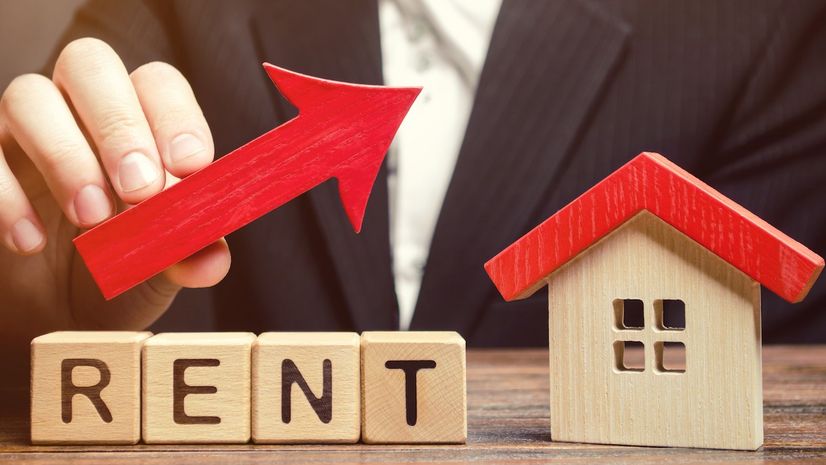
The COVID-19 pandemic sent rental prices tumbling as city dwellers fled for the hills, but the latest data shows those prices haven’t just recovered—they’re surging to a new all-time high.
Median rents jumped 13.6% compared with last year in the 50 largest metro areas of the U.S. as people start to return to cities, according to monthly rental report from Realtor.com®. Rents hit a median price of $1,654 in September, which means renters are paying $198 more compared with the same time last year and an extra $222 versus two years ago, before the pandemic began.
(Metros include the main city and surrounding towns, suburbs, and smaller cities.)
“It really highlights how challenging affordability is at this point,” says George Ratiu, manager of economic research for Realtor.com.
This surge in rent is coming at the same time that buying a house is getting less affordable, too. Home prices are at record highs and more people are returning to cities, which creates more competition and higher prices in the rental market.
In addition, the federal government ended its moratorium on evictions. This means the foreclosure rate is going up, so more people may be forced to sell their home and rent instead. It also means landlords have more power to kick out tenants and raise the rent on whoever moves in next.
However, the increase in rents does at least signal that the economy is recovering from COVID-19, as tenants come back to cities and support local businesses.
Growth was particularly high in metros such as Tampa, FL, which includes St. Petersburg, which has seen a whopping 33.3% increase in rental prices. Monthly rents were a median $1,800 in the Florida city.
“The rental market is as tough as the sales market,” says Alma Alexander, a Realtor who’s with Coldwell Banker in Tampa.
She says a growing economy and strong sports industry are attracting many people to the Tampa region. The pandemic also gave the area a boost as many folks in snowier areas who could work remotely headed for cheaper, sunnier parts of the country. But in cities across Florida, there’s simply not enough housing to meet the demand.
The other metro areas with the highest yearly growth in median rent were Miami, at 31.6%; Riverside, CA, at 26.5%; Phoenix, at 26.4%; and Las Vegas, at 25.9%.
The pandemic saw a particularly large exodus of renters from big tech hubs like Seattle and Austin, TX, since tech-related jobs are often well-suited for remote work. As of September, rents in those cities are largely back to normal, and in some cases even higher than they were at the beginning of March 2020.
In Seattle, for example, median rents dropped around $300 from March 2020 to January 2021, from $2,923 to $2,610. As of September, they’re back to almost the same price they were before, at $2,895 a month. In Austin, rents last month were around 20% higher than they were in March 2020, jumping from $1,367 to $1,647.
More people returning to these tech hubs is a good sign generally for big cities and the U.S.
“In a sense, they were bellwether markets for when rental housing would see a return toward some degree of normal,” says Ratiu.
Zillow’s zeal to outbid for houses backfires in flipping fumble
Patrick Clark and Noah Buhayal | Bloomberg
10/27/2021
Faced with the fastest-growing real estate prices in US history, Zillow Group has tweaked algorithms to enhance home flipping operations to offer higher offers.
It ended up with so many successful bids that I had to stop offering new offers for the property. Now, after buying more homes than ever in the third quarter, the company is tackling the unprocessed portion of homes that need to be repaired and sold in the face of unpleasant reality. The slowdown in price increases has cost many homes.
According to a YipitData survey, Zillow launched a record number of homes on the market in September, listing properties with the lowest markup since November 2018. According to Yipit, in the third quarter, prices fell by almost half of the US listing, indicating that inventories are lower than expected.
The shift is on display in places such as Atlanta and Phoenix, two markets where home prices are skyrocketing. Zillow’s approximately 250 active list in Phoenix is now on average 6% cheaper than the company paid for homes.
According to data compiled by Mike Delprete, a real estate technology strategist and scholar at the University of Colorado at Boulder, this represents a $ 29,000 discount on typical real estate.
“All the key indicators from Zillow over the last few months are totally meaningless,” said Del Prete. “It’s like making a decision a couple of months behind the market.”
Zillow’s newly discovered aggression was good for people like Abidemi Bolatiwa who were watching the process run in real time. According to real estate records, he sold his four-bedroom home in Phoenix to Zillow in late September for $ 531,300, paying a convenient fee that was cheaper than traditional agency fees.
Mr. Volatiwa also Opendoor Technologies, That would have paid him about $ 504,000. Ten days after Zillow bought the home, the property went public for $ 505,900. When it didn’t sell, the company cut another $ 11,000 to $ 494,900.
According to DelPrete’s analysis, Zillow’s biggest competitor, Opendoor, continues to sell more homes than it buys, while home sales in Phoenix are declining. It also performs well in Atlanta, where Opendoor lists homes with a premium of 6.5% of the purchase price compared to Zillow’s 1.3% spread.
Zillow representatives declined to comment.
The company said on October 18th: It will stop making new offers to buy a home Reduce your share by 9.4% while processing the backlog. However, analysts most often shrugged off operational stumbling blocks and stocks recovered from these losses. The home flipping business dating back to 2018 is not yet profitable.
“Prices turned them on, they were a bit flatfoot, and probably a little too aggressive about bidding,” said Brad Ericsson, an analyst at RBC Capital Markets. “They probably don’t care so much. Making money isn’t that important at this stage of the game.”
Zillow and Opendoor are practicing a high-tech spin of home flipping called iBuying. Both companies use software-based algorithms to predict changes in home prices. They charge a fee instead of a typical real estate agent’s fee and pitch to their customers about the convenience of the service. Buying thousands of homes every quarter is a complex process and requires a lot of precision to do it right.
Rich Barton, CEO of Zillow, emphasizes that it is important to make competitive offers to reach the scale needed to make a profit in the business. He lamented in an August call with investors that soaring home prices have widened the spread between the cost of Zillow buying and repairing homes and the cost of selling real estate. rice field. As a result, the company, which purchased 3,800 units in the second quarter, has set a goal of purchasing 5,000 units a month by 2024 and is offering more offers.
“We saw a rapid increase in conversions throughout the quarter as we improved the strength of our offers,” he said.
Zillow and Opendoor are practicing a high-tech spin of home flipping called iBuying. Both companies use software-based algorithms to predict changes in home prices.
Richard Flor talked to a realtor this summer about listing a three-bedroom, three-bathroom rental for about $ 390,000 in the western suburbs of Phoenix, Tolleson, Arizona. Instead, he sold it to Zillow in September for about $ 412,000 and paid 1% of the service.
He then saw Zillow make a minor repair and relist the house for $ 387,000 two weeks later.
“I was wondering,’How do they make money,’” Flor said. “Maybe they know what I don’t know.”
Here’s why Zillow won’t be buying any more homes to renovate and resell this year
By JOE HERNANDEZ
10/20/2021
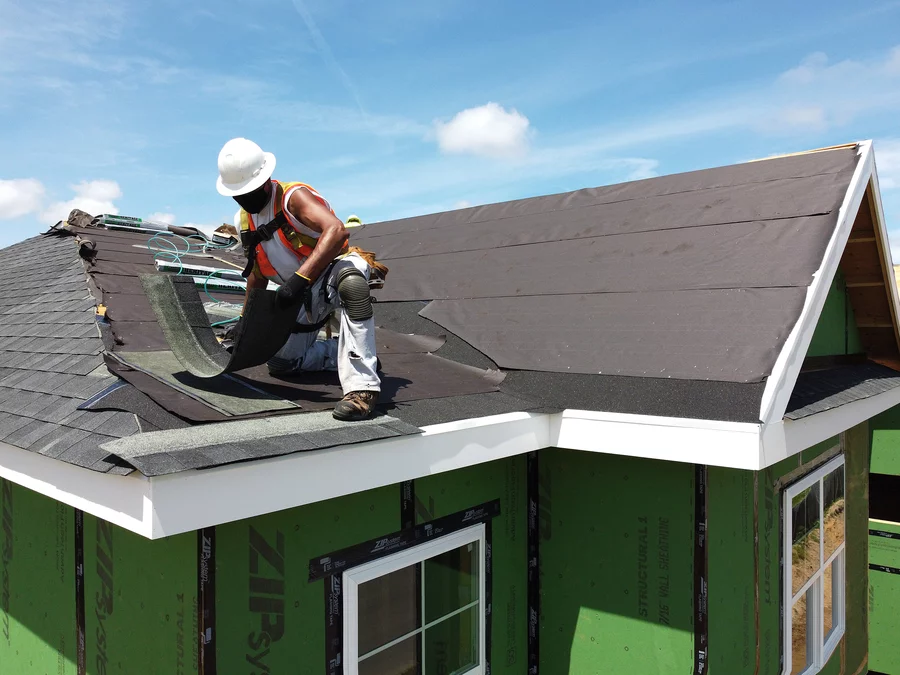
Al Bello/Getty Images
The real estate website Zillow announced it would stop buying and renovating homes through the end of the year as it works through a backlog of properties and it deals with worker and supply shortages.
“We’re operating within a labor- and supply-constrained economy inside a competitive real estate market, especially in the construction, renovation and closing spaces,” Jeremy Wacksman, Zillow’s chief operating officer, said in a statement.
“We have not been exempt from these market and capacity issues and we now have an operational backlog for renovations and closings,” he added.
Through its Zillow Offers program, the company buys homes directly from sellers, completes the necessary upgrades and lists them for sale. This lets sellers avoid having to do repairs or set up showings themselves, the company says.
Zillow, which is known for its online real estate listings, told shareholders that it purchased 3,805 homes through the program in the second quarter of this year, a major increase over previous years.
Zillow Offers, which launched in 2019, sold 2,086 homes and made a gross profit of $71 million over the same period.
The company announced on Monday that it wouldn’t sign any new contracts to buy homes through the end of 2021. Zillow said that it would still market and sell homes through the program and that it would also continue to buy houses with contracts that have already been signed but have yet to close.
The construction industry was one of many that were hit hard by the COVID-19 pandemic, which saw the cost of building materials soar. Meanwhile, the demand for homes — as well as their price tags — has surged.
While the astronomical prices of wood have decreased from their recent highs, other materials such as steel and piping remain costly or in short supply. On top of that, there is a serious shortage of construction workers.
Both the construction of new homes and the authorization of building permits fell in September compared with the previous month, according to the U.S. Census Bureau.
In an interview with Marketplace Morning Report last month, Associated Builders and Contractors economist Anirban Basu said the coronavirus was still causing problems in the housing industry. “The spread of the delta variant globally has increased supply chain issues. It means higher prices for inputs; it raises the cost of delivering construction services,” Basu said.
Zillow slams the brakes on home buying as it struggles to manage its backlog of inventory
By Anna Bahney, CNN Business
10/18/2021
Zillow will stop buying homes through Zillow Offers for the rest of the year, as the company’s iBuying program goes from full speed to full stop.
The company announced on Monday it would not contract to buy any more homes in 2021 in order to work through the backlog of homes it has already bought.
The “iBuyer” model used by Zillow and other real estate companies entails purchasing homes directly from sellers, and then re-listing the properties after doing minor work. But thanks to the current shortage on labor and materials, Zillow can’t close, renovate and resell the homes fast enough.
“We’re operating within a labor- and supply-constrained economy inside a competitive real estate market, especially in the construction, renovation and closing spaces,” said Jeremy Wacksman, Zillow’s chief operating officer, in a statement.
“Pausing new contracts will enable us to focus on sellers already under contract with us and our current home inventory,” said Wacksman.
Zillow will still market and sell the homes it has acquired through Zillow Offers, which has been on a purchasing tear this year. It bought 3,805 homes in the second quarter — a record high for the company and more than double the number of homes bought in the first quarter, according to a note to company shareholders.
Zillow, known for its online real estate listings, introduced an iBuyer program, Zillow Offers, in 2018 and now operates in 25 cities. Like other iBuyers — such as Opendoor, RedfinNow and Offerpad — Zillow Offers uses data and algorithms about the property and the market to make a cash offer on an off-market home, and buys directly from the homeowner.
IBuyers appeal to home sellers because closings can take place anywhere from 7 to 90 days after the contract is signed and can provide some certainty and control over the sale of their home without the hassle of finding an agent and prepping the house for market. According to Zillow, the fee to the seller for Zillow Offers averages 5%, but can vary based on market conditions.
Home purchases by iBuyers now account for about 1% of the market, according to a report from Zillow. The share is still a tiny part of the whole market, but shows tremendous growth over the past few years as the iBuyer share in some cities, like Phoenix, Atlanta or Charlotte, North Carolina, now tops 5%.
Zillow wasn’t alone among iBuyers in buying a lot of homes this year. IBuyers bought more houses, at higher prices, in the second quarter of this year than in any other quarter, according to research from Mike DelPrete, an independent real estate technology strategist and scholar in residence at the University of Colorado Boulder. That has surprised some skeptics who did not think the iBuyer model would be appealing to home sellers in a hot market.
His research suggests that sellers are drawn to the certainty and ease of iBuying and the market conditions fueled its growth.
Zillow’s move to halt purchases is surprising, he said, particularly because it is so sudden.
“iBuyers have access to a tremendous amount of data, they can see months into the future and plan their inventory,” said DelPrete. “So the fact that Zillow didn’t see this coming and wasn’t able to make adjustments before it had to resort to an iBuying lockdown is pretty surprising.”
This shift, he said, demonstrates how difficult this business model is to scale up. Large iBuyers need to be skilled at both managing billions of dollars in capital, but also the logistical specifics of prepping a home for sale, down to drywall and painting and closing deals.
“There is only so much that technology can do,” said DelPrete. “At the end of the day you need people to process a lot of transactions.”
However, the halt appears to be a Zillow-specific problem, not an iBuyer industry problem, DelPrete said.
“Zillow just kept barreling down and now they’ve hit this wall,” he said.
This is not the situation a growth-focused company wants to be in, he said.
“If you’re trying to be number one in the market, slamming on the brakes is one of the worst things you can do,” said DelPrete. “You want to make some adjustments before you get to that point — slow down, switch gears. This is not the preferred outcome for Zillow.”
Opendoor, the leading iBuyer ahead of Zillow at a distant second, said in a statement it is still open for business.
‘Insatiable demand’ for warehouse space continues in NJ
Rents surge to record high as developers scour state for booming logistics industry
By JON HURDLE
10/16/2021

Rents surged and vacancies dropped to a record low for warehouses and other industrial buildings in north and central New Jersey from June to September, a new report said Wednesday, as demand from e-commerce continued to fuel the state’s red-hot market for logistics space.
The asking price for industrial rents rose 15.6% to a record $10.72 per square foot while vacancies fell to 3.4% from 3.8% only three months earlier. For warehouses, which account for about three-quarters of the overall industrial market, the vacancy rate was even lower, at 2.9%, according to the report from Newmark, a commercial real estate company.
As in the first half of 2021, the growth was again driven by very strong demand from logistics companies for space to store and distribute an avalanche of goods ordered online.
“Insatiable demand from ecommerce, corresponding with a long-term shift in consumer spending habits towards online spending and away from traditional retail stores remains a key driver of leasing activity,” the report said.
Demand for logistics space has been strong for five years but was fueled further over the past year by online shopping during the pandemic. It has also been driven by the state’s proximity to Port Newark-Elizabeth where one of the nation’s largest volumes of consumer imports enters the country, and by New Jersey’s position at the heart of the populous Northeast market.
While the boom has created thousands of jobs, including some 50,000 at Amazon alone, it has also sparked protests and lawsuits in some communities where residents fear that local roads will be choked by new truck traffic, and that remaining rural enclaves will be occupied by giant warehouses that may cover a million square feet or more.
In the Legislature, public concern that warehouses affect areas beyond the towns where they are built has also spawned a bill co-sponsored by Senate President Steve Sweeney (D-Gloucester) that would require towns facing a warehouse application to alert neighboring municipalities and try to win their support for the project.
Numbers show big-time growth
The new data shows the boom is only accelerating. Industrial space under construction, almost all of which was for warehouses, rose to 13.9 million square feet in the latest quarter from 13.4 million in the second quarter of 2021. Despite a supply shortage, the amount of industrial space leased in the first three quarters of this year, 28 million square feet, exceeded that for all of 2020.
In another key indicator of the strength of demand, net absorption — the difference between the amount of industrial property that became occupied during the quarter, and that which became vacant — jumped to 4.7 million square feet in the latest quarter from 3.1 million square feet in the previous three months.
“It’s remarkable to me that it keeps going up,” said Tim Evans, director of research at New Jersey Future, a nonprofit that advocates for “smart growth.” He said the warehouse boom can’t be fully explained by the surge in online shopping during the pandemic, and may have also been fueled by an increase in the volume of imported goods arriving at Port Newark-Elizabeth from Asia since the Panama Canal was widened to accommodate bigger ships in 2016.
Evans predicted that the continued high demand for warehouse space will result in both vacant and previously developed land being obtained for an industry that wants to be as close to the port as it can. That process may involve “second-generation” redevelopment of sites that first held factories, then became office parks, and would now be occupied by warehouses.
“As factories close to the port get used up, they might start buying second-generation redevelopment sites like office parks,” he said.
The report said there’s a “widening imbalance” between supply and demand, especially in sub-markets where available land is limited. They include the Meadowlands, where rents jumped 28.5% in the latest quarter compared with a year earlier. The report predicted that the sharply higher rents there will spur developers to redevelop land or reuse existing buildings.
Major transactions included 840,000 square feet leased to Peloton, the fitness equipment maker, at Linden; 511,000 square feet in Warren County to Alan Ritchey, a logistics provider, and 326,000 square feet in the Meadowlands taken by TJ Maxx, a clothing retailer.
In the warehouse sector specifically, the highest asking rent among 21 local markets was $14.73 per square foot in the Meadowlands, followed by $14 in the market around New Jersey Turnpike Exit 12 where the vacancy rate was virtually nonexistent at 0.1%.
No end in sight
There’s no sign that high rents and low vacancy rates will let up any time soon, given continuing high demand from logistics companies, the report said. It forecast that developers will continue to encounter rising construction costs, shipping delays and labor shortages.
“In the coming months, robust demand from ecommerce and logistics companies is expected to maintain a record low vacancy rate, driving further growth in warehouse rents,” it said.
Micah Rasmussen, a Rider University professor who led a successful campaign against a planned warehouse in Upper Freehold earlier this year, said people should consider whether New Jersey is getting over-developed — in light of the ongoing warehouse boom and the devastating flooding caused by Tropical Storm Ida.
“I think the shortcomings of our over-development became much clearer to a lot of people during Ida,” he said. “We need to rethink what we’re doing, and given what’s happening in the market, it seems like the perfect time for us to do that.”
In N.J., the fall housing market is starting to look better for buyers
BY ALICIA SMITH
10/08/2021
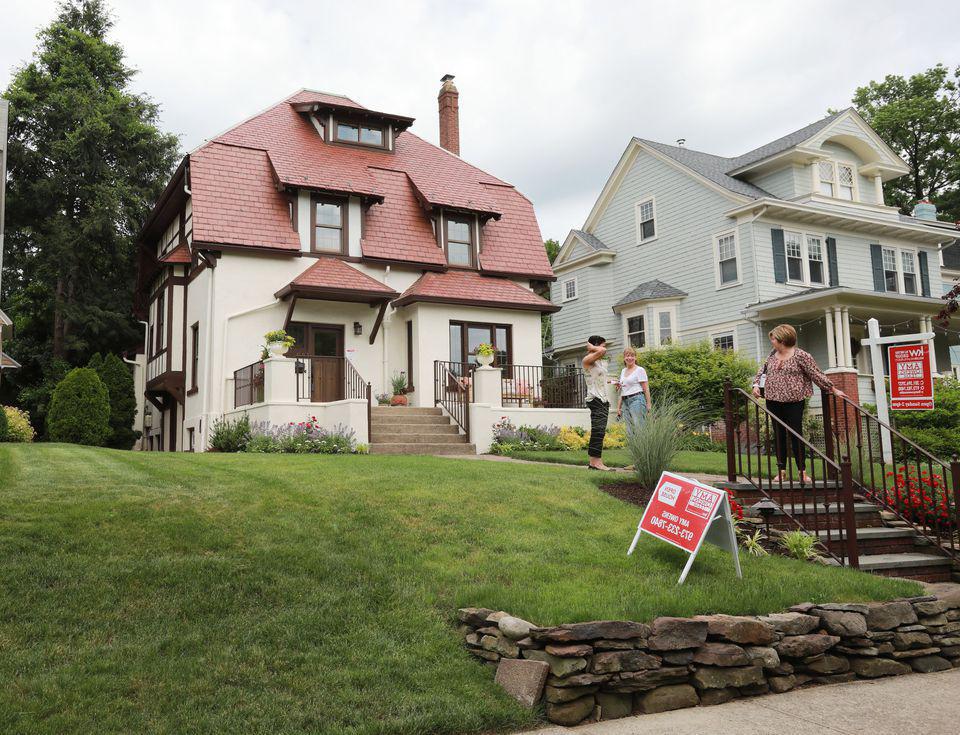
The red hot residential real estate market is beginning to cool slightly, and this trend is expected to continue for the remainder of the year.
Low interest rates, low inventory, and buyers looking to leave urban areas, such as New York City, for more space in the suburbs, were largely driven by cheap interest rate rates and low stock levels in New Jersey City.
However, according to Jeffrey Otteau, a real estate economist and president of the Otteaux Group, the home buying demand is running at slowed pace in New Jersey four months later.
He explained that Its not that it’s collapsing, he said. It’s normalizing.
According to Otteau’s data, contract sales were down statewide by 12 percent in June, 22 percent on July, 16 percent, and 22 cents in August for the first three weeks of September.

Sales are lowering, according to him, because home prices have risen so much that they are unaffordable even with low interest rates. And urban flight in the middle of the epidemic, which brought city-dwellers who wanted more room to the suburbs, has ended.
Migration from the city to the suburbs is now reversing as cities renown, Otteau said. As employers are advising workers to return to the office, were starting to see housing shift back in toward the city.
According to Otteau’s data, contract sales in Hudson County have risen by 35% every year to date, according to him.
And according to New Jersey Realtors August report, closed sales in Hudson County were up 17.1% in August alone, despite closed doors falling by 10% statewide.
Irene Barnaby of Compass in downtown Jersey City said she’s seeing buyers who were renting in the area and want to profit from low interest rates, international buyers, and some of the situations when people who fled Hudson County” traffic now want back.
One couple she worked with sold their three-bedroom apartment in downtown Jersey City and moved to Maplewood in May 2020. They called her about 6 months ago and stated they sold their Maplewood house and were returning to Jersey City.
They missed the vibrancy and being in the center of the action, and having access to New York City, Barnaby stated.
People who are buying in Hudson County still want space, she added. The majority of people are searching for two or more bedrooms and want some sort of outdoor space. She said, “One-bedrooms are difficult to sell,” and she remarked.
Another factor slowing home sales overall is that home prices rose 12% in 2020 and are on the verge of risen 17 percent this year, according to Otteau, stating that prices grew an average of about 3% for each of the previous 7 years.
House prices can only rise as fast as salaries, he said. Banks won’t lend buyers enough money to afford a house after ten years of that (faster than salary growth). There must be a correction to follow, if home prices rise faster than salaries.
Otteau predicts a price increase of 5% in 2022 and regress of 5 percent in the 2023.
However, he said, it’s still a good moment to purchase. He explained, “You’re going to get a lower interest rate now than in the future,” he added.
According to Reuters, American Federal Reserve policymakers may be able to raise interest rates next year.
According to Otteau’s statistics, the highest segment of the housing market is homes in the $1 million to $2.5 million sales range, which is responsible for approximately 45 percent of sales, followed by the $600,000 to $1 millions sales spectrum, with 30 percent sales.
Those buyers are chasing up and, in the process of purchasing, they’re also increasing the inventory of homes on the market because they sell their existing homes.
People were concerned about job security, so they didn’t want to take on a larger mortgage, Otteau said, because trade-up buyers were not selling last year. They were concerned that strangers gathered across their houses in the middle of a health crisis.
However, the trade-up market hasn’t completely exploded.
Missy Iemmello, office manager for Weichert Realtors in Morris Plains, whose 120 agents work in the Morris, Sussex, Warren, Bergen, and Essex counties, said in September that she saw a rise in inventory that quickly slowed.
We were all delighted. We believed they’ve been anticipating this year, Iemmello added. Then it was simply a short blimp, all of oh, this was subsequently merely en route to victory.
Hurricane Ida, according to Iemmello, stopped the trend.
People got water where they never had water before, she explained. I believe we should see inventory numbers increase in the following weeks.
Frustrated House Hunters Are Giving up on Buying Only to Face an Expensive Rental Market
By Aly J. Yale
9/22/2021
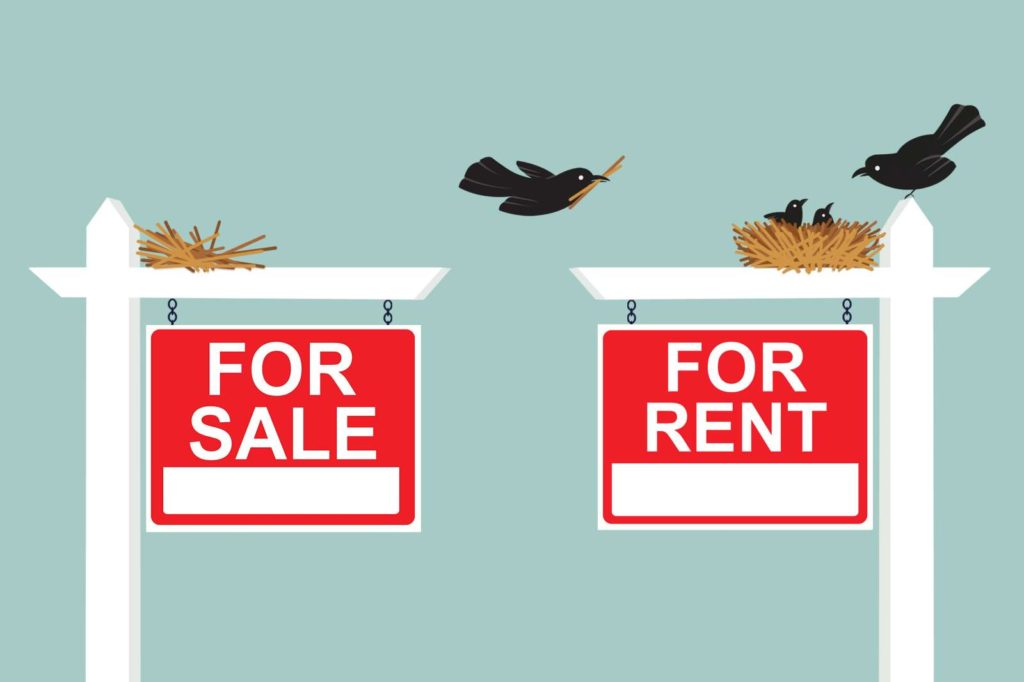
Cramped in a one-bedroom, new parents Kristina and David Mahon were desperate to buy a larger home. But after scouring the Pompano Beach, Florida market for nearly a year (and losing out on 20 houses in the process), the pair eventually gave up.
Now, the couple — with a 10-month old baby in tow, no less — are renting, a decision Kristina says they felt “forced” into.
“I feel like I’m wasting money for something that’s not mine,” Kristina says. The rental“options were very limited, and the prices were on the high side of what we were comfortable spending on a rental.”
The Mahons’ is a common storyline these days, according to those in the industry. Burned-out house hunters are tired of bidding wars, rising prices and dwindling options and are bowing out of the purchase market, opting to rent instead.
“It’s common given the current market and environment that we are in,” says Kaley Tuning, the Native Realty agent who worked with the Mahons. “It just becomes frustrating for the everyday buyer. I’ve had buyers bid upwards of $40,000 over asking price and still get outbid.”
Unfortunately, the pivot to renting isn’t always easy. While the move may afford frustrated buyers time to wait out the competitive housing market, it often means entering an equally hot rental scene — one where rising rents and dwindling supply are growing concerns.
According to Realtor.com, median national rents grew a whopping 11.5% between August 2020 and August 2021. And rent applications? Those are up as much as 95% in some cities, according to apartment listing platform RentCafe.
For hopeful homeowners, it’s made for a unique catch-22 that’s as frustrating as it is costly.
Rents are on the rise
It’s no secret the housing market’s been hot this year. The purchase market has boomed in nearly every corner of the nation since last spring. Home prices are up 17% over the year, and inventory, while improving, is still near record lows.
The rental picture has been more mixed, though. At the start of the pandemic, vacancies in big cities rose and prices dropped, while demand for suburban rentals skyrocketed. Now, rents are bouncing back across the country, reaching well above pre-pandemic levels in many areas.
According to Realtor.com, the typical rent now clocks in at $1,633 per month — $169 more than this time last year and almost $200 more than 2019’s numbers. And in nearly half of the country’s biggest cities? Monthly starter home payments are more affordable than average rents.
The hot housing market has a lot to do with this spike in rent costs. With rising home prices and limited for-sale listings, more and more buyers are stepping back. This puts pressure on rental inventory and drives up rents.
As Lisa Harris, an agent at RE/MAX Center in Braselton, Georgia, explains, “Fewer homes listed for sale and much higher prices for them have kept many want-to-be buyers in their rental units, taxing the rental supply.”
The pandemic plays a role, too. Eviction bans have kept many non-paying renters in place, tying up units for much of the last year. While the CDC’s eviction moratorium was shot down late last month, the experience has made many landlords warier than ever.
“Not only have the prices increased, but the demand on tenant screening seems to be getting much more stringent,” Harris says. “Landlords are seeking tenants with higher credit scores, higher deposits, no pets, a clean criminal history and more.”
The trickle-down of higher rents
Alex Lashner, like the Mahons, has experienced the difficult rental market firsthand. She even had to expand her rental search to account for price increases and is now looking as far as 90 minutes from her office just to stay on budget.
“I’m hoping it will be a short-term sacrifice so I can buy closer to my workplace a few years down the line,” she says.
Lashner was originally looking to buy her first home somewhere in Bucks County, Pennsylvania, but due to the competitiveness of the market — and her refusal to waive contingencies or overpay (as many buyers are forced to do lately), she lost out on every property she bid on. She finally opted to rent, only to find rising prices there, too.
“I’m frustrated that buying a three-bedroom home in my budget is cheaper than renting when you compare the monthly costs of a mortgage, property taxes and HOA fees versus the rental costs for a two-bedroom or even a one-bedroom apartment,” Lashner says. “That’s where my real sticker shock is.”
Rising rents are more than just a budgetary strain for hopeful buyers, though. They also make it harder to save, which could push back those homebuying goals even further. The Mahons are one household in that camp, something Kristina calls “frustrating.”
“Instead of us paying down our own mortgage and building equity, we are paying someone else’s mortgage,” she says. “For the next year or as long as we are renting, we will not be able to save as much as we had hoped.”
Buyers who are forced to sign long-term leases have another dilemma, too: What if mortgage rates go up?
Interest rates have been hovering near historic lows for months now and have played a major role in boosting buyer demand. Kristi Nowrouzi, a mortgage loan officer with Geneva Financial, says many buyers who have backed out of the market recently are concerned those conditions could change.
“There’s a fear of missing out on the low-interest-rate environment,” Nowrouzi says. “Inflation is blowing up and who knows what rates will look like next year at the end of an annual lease agreement.”
What’s the solution?
One option for buyers facing sky-high rents is to opt for a month-to-month lease. The flexibility usually comes with a slightly higher monthly rent, but it ensures you can act quickly should the right house hit the market.
“By doing a month-to-month lease, even though rent might be slightly higher than signing a long-term lease, they can be ready to take action,” says Shmuel Shayowitz, president and chief lending officer at Approved Funding, a mortgage lender in New Jersey. “They can also continue to actively look for homes and, even if pricing doesn’t soften, be in a better position to act.”
Fortunately, strategies like this might not be necessary for long. Buyers still face plenty of challenges, but recent data points to growing housing supply — particularly in the starter home segment. Existing home sales have also slowed, falling 2% in August, and price growth has decelerated as well. According to Realtor.com, 17% of all listings had price reductions in August.
“The market is absolutely shifting now, and prices are decreasing a bit and sellers aren’t getting as high price per square feet as they were a few months ago,” Nowrouzi says.
A completely cooled-off market, though? That could be a long way in the future. Until then, Tuning says, “Patience is a virtue.”
为解住严重宅荒 美联邦政府要盖10万户平价宅
来源:经济日报
9/02/2021
在美国房价持续高涨之际,白宫官员表示,美国政府为纾解严重住宅荒,将采取一系列立即可实施的步骤,以现有经费和权力,在未来三年兴建、销售10万户平价住宅。
路透引述官员说法报导,这套计划最快1日宣布,将聚焦于扩大对个人和非营利机构销售房屋,同时对大型投资人买房设限。第2季全美各地每售出六户住宅,就有一户被投资大户买走。
美国房屋需求在新冠肺炎疫情爆发初期激增,反映民众为居家办公和学习购置更宽敞的房子。但待售屋不足和供应链瓶颈把房价推得更高,租金行情跟着水涨船高,加重家庭财务负担。白宫官员说,全美平价住宅估计短缺多达400万户。
白宫官员表示,美国总统拜登(专题)已提议,斥资逾3,000亿美元增建200万户平价住宅,这项措施是3.5兆美元基础建设投资案的一部分,正在国会审议中。但拜登希望推动立即可行步骤。
这套新计划将涵盖乡村与都会地区的住宅建案,重点摆在平价房市,希望能协助房屋自有率偏低的有色人种族群。
此计划将由美国住宅与都市发展部(HUB)部长法吉(Marcia Fudge)宣布,具体行动由该部、财政部及房贷机构房利美(Fannie Mae)与房地美(Freddie Mae)等联邦监管机构共同规划。“两房”合计占全美11兆美元房贷市场的一半。其中,一大关键步骤是重启曾由财政部与HUB合办但在2019年结束的“风险分摊计划”,该计划让各州住宅金融机构能扩大提供低利贷款,促进兴建平价住宅。
此计划也将提高组合屋及二至四户多户型不动产的供应量,希望透过房地美扩大融资达成目标。同时也将采取行动,限制对大型投资人销售一些由联邦住宅管理局(FHA)提供担保的不动产。
拜登政府另打算与各州和地方政府合作运用现有联邦资金,并协助减少排他性分区(exclusionary zoning)等阻挠提高住宅供应量的做法。
White House tackles housing shortage with plan for 100,000 affordable homes
By Andrea Shalal
9/02/2021
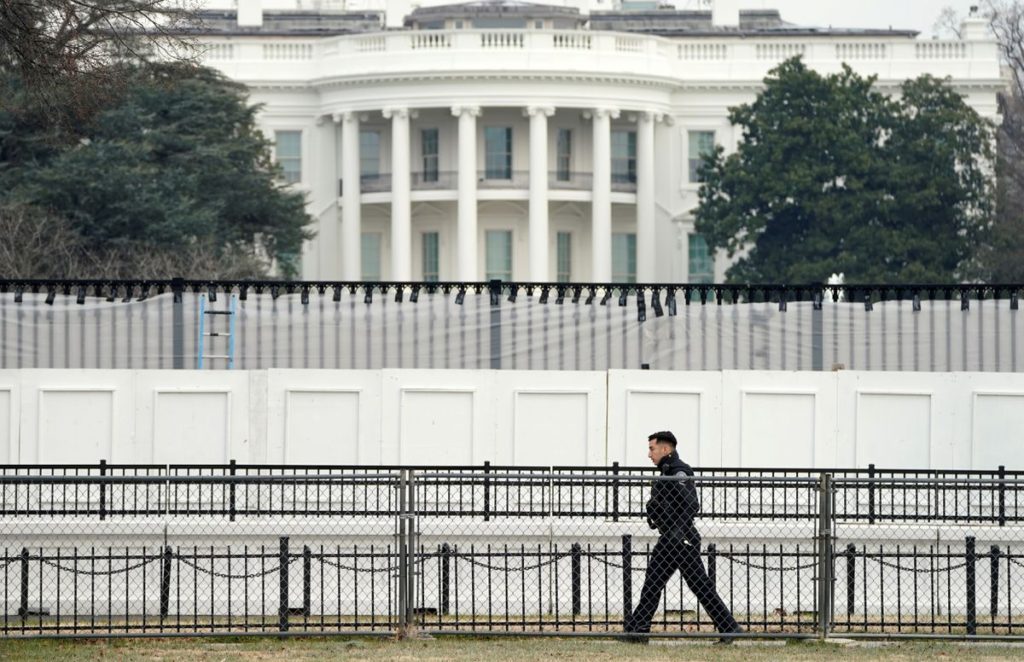
WASHINGTON, Aug 31 (Reuters) – The Biden administration is taking steps to address a severe housing shortage in the United States by creating and selling 100,000 affordable homes over the next three years using existing funds, the White House said on Wednesday.
The moves will focus on boosting home sales to individuals and non-profit organizations, while limiting sales to large investors, who scooped up one in six homes sold in the second quarter, according to a White House statement.
Demand for housing soared early in the pandemic as Americans sought more spacious accommodations for home offices and home schooling, but a shortage of homes for sale and supply chain bottlenecks have driven housing prices sharply higher.
Rental prices, which typically follow the lead of house prices, are also a big concern, given that even before the pandemic 11 million families – or nearly a quarter of all renters – were already spending more than half their income on rent, according to the White House.
The United States has an estimated shortage of as many as 4 million affordable housing units, White House officials say.
U.S. President Joe Biden has proposed spending over $300 billion to add 2 million more affordable housing units as part of a $3.5 trillion investment package being considered by Congress, but wanted to push forward with immediate steps that could be taken now, the White House said.
The plans will cover rural and urban housing projects, with a focus on aiding communities of color, where home ownership rates have lagged historically.
U.S. Housing and Urban Development (HUD) Secretary Marcia Fudge will announce the measures after touring a new five-story affordable housing complex in Philadelphia on Wednesday.
Fudge called the initiatives “significant downpayment” on Biden’s commitment to boost the supply of affordable rental housing, expanding access to capital for state Housing Finance Agencies, empowering local communities to build more affordable housing and promoting equitable housing policies.
Specific actions are planned by Fudge’s department, the U.S. Treasury and agencies such as Fannie Mae and Freddie Mac, which will increase financing opportunities to enable more Americans to purchase homes, the White House said.
One key step is the revival of a joint Treasury-HUD “Risk Sharing Program” that ended in 2019 and that will enable state housing financing agencies to provide more low-cost capital for affordable housing development.
The plans will also boost the supply of manufactured housing and 2-4 unit properties by expanding financing through Freddie Mac, while taking steps to limit the sale of some U.S. Federal Housing Administration-insured properties to large investors.
Investor purchases, which have been as high as one in every four homes in some communities, have driven up prices for lower-cost houses and triggered fierce competition for starter homes, the White House said.
The administration also plans to work with state and local governments to leverage existing federal funds, and help reduce exclusionary zoning and other practices that have discouraged efforts to boost the supply of housing, the official said.
The Federal Housing Finance Agency “will begin to study the interaction between exclusionary zoning and our regulated entities,” said acting Director Sandra L. Thompson.
如何计算一个投资房产的租金回报率?
By Willy Rong
3/07/2021
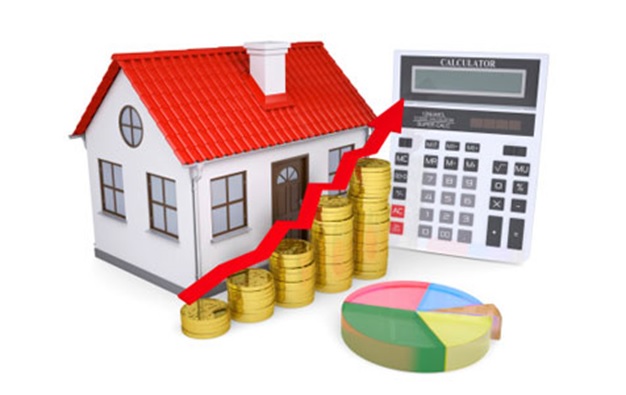
一直以来都有人问我,如何计算一个投资房产的租金回报率?我答过,但总是似是而非。
今天就这个问题给出我的计算公式Return Of Investment (ROI),仅供大家参考。
这个问题要从两方面讨论,看你是全额现金买房?还是贷款80% 买房?
(全额现金买投资房产)租金回报率 = (12月的租金 – 一年的各种花费)/ 买房价
(贷款80%买投资房产)租金回报率 = (12月的租金 – 一年的各种花费和贷款 )/ (
20%首付+ Closing Cost )
我们还是以一个$38万美元买房实例来计算,比较直观:
房子开支预算:
HOA $38/月; 保险 $120/月; 税 $356/月; 维修 $100/月。
共计 $614。
贷款 80%, 约每月还贷$1500;
租金每月$2350;去掉开支 $614; 每月净收入 $1736;
一年的总收入 $20832。

问:一个$38万美元的房产,每年的回报率?
(全额现金买投资房产)租金回报率 = (12月的租金 – 一年的各种花费)/ 买房价
$38万美元房子的租金回报率 = 一年的总收入 $20832 / 买房价$380,000 = $0.0548
全额现金$38万美元房子的租金回报率一年约为:5.5%;
(贷款80%买投资房产)租金回报率 = (12月的租金 – 一年的各种花费和贷款 ) / (
20%买房首付 + Closing Cost)
$38万美元贷款80%房子的租金回报率 = (一年的总收入$20832 – $18000) / (首付 $
76000 + $5000 Closing Cost ) = $0.0349
$38万美元贷款80%买投资房产的租金回报率一年约为:3.5%.
这个$38万美元的房子在最好学区,房子升值潜力大!
考虑到加上房子产权equity 上涨的因素,一年在6%-8%。所以要加上一个Equity 增值
率,换句话说,是用$81000 买了一个$38万美元的房产,是用杠杆买的房子。
这里有2个概念:一个是租金回报率;一个是Equity 回报率;
利用杠杆买房,就要让银行在这个房子上也赚一些钱,所以贷款租金回报率3.5%.要低
于全额现金租金回报率5.5%,这个逻辑是对的,那个2% 回报率的差让银行赚去了。
什么是智慧?智慧就是解决问题的能力!
能够把一个复杂问题简单化,用直白的方式讲清楚,这也是智慧。
现在亚特兰大地区(佐治亚),一个房子的租金回报率大概在3% ~ 6%左右,真心话,
投资房净租金回报率6%是一个不错的回报。
你若嫌上面二手房一年的租金回报率还低,你可以全现金买126包租5年的项目,一年的
租金回报率为净6%。
下面是在网上找到的租金回报率计算器,大家可以去练习:
租金回报率
https://www.calkoo.com/zh/zujin-huibao-lu
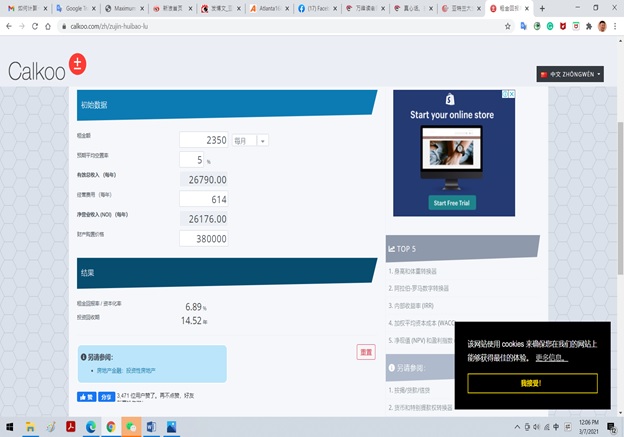
提示:算大账不算小账,可能公式不够严谨,但逻辑是对的。
Source: http://www.mitbbs.com/article_t/Georgia/31320547.html













